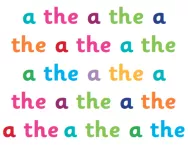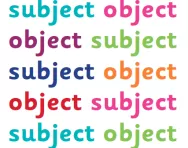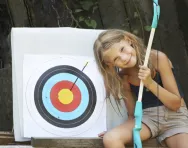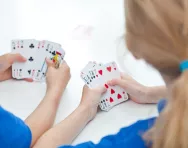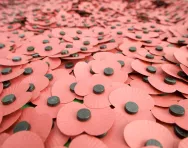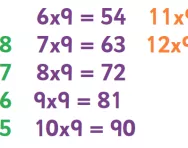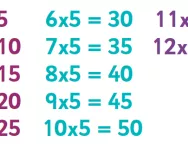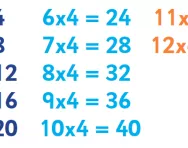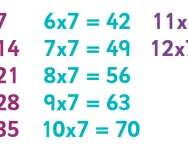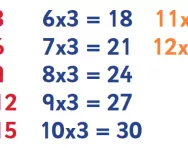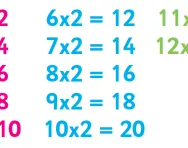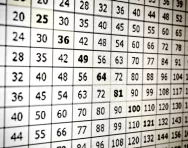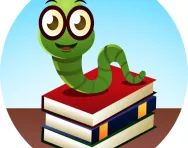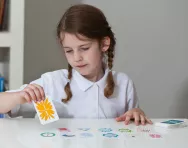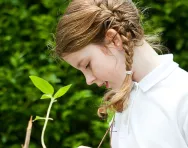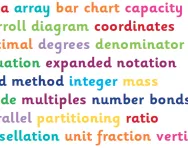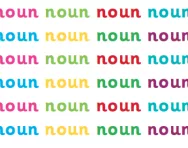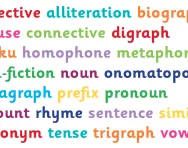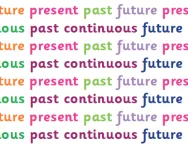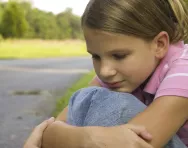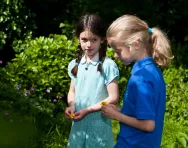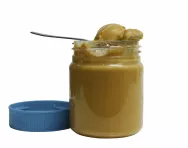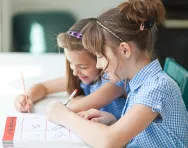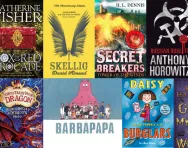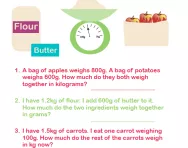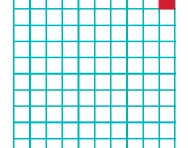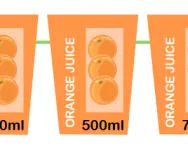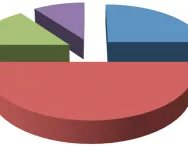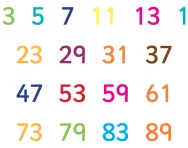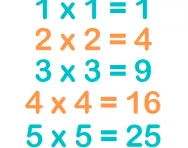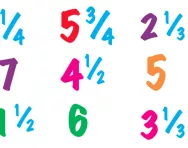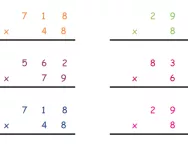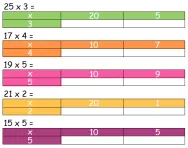What is journalistic writing?
Hold the front page! Primary-school children study the features of news reports (headlines, pictures, captions, quotations) and often learn to write their own article, usually related to a theme they are studying. Here's how you can support their learning at home.
What are definite and indefinite articles?
Definite (the) and indefinite (a, an) articles explained for primary school parents, with examples of how they will be taught in primary-school grammar lessons.
What are active and passive sentences?
The cat chased the mouse; the mouse was chased by the cat. Learn to identify active and passive voice in sentences and support your child's Year 6 grammar knowledge and understanding.
What are subject and object?
Subjects and objects in sentences, plus subject-verb agreement – primary-school grammar terms explained for parents, with examples.
Team mates not required
Many children are turned off by team sports. However, there are plenty of fun alternatives for kids who reject rugby or couldn’t care less about cricket, says Andrew Shields.
10 ways playing cards helps children with maths
Fancy a quick game of cards? Studies show cognitive benefits to play and card games teach children new strategies for using mathematical information, categorising patterns, sequencing and sorting. Last but not least, this is numeracy practice the whole family will enjoy (though things might get a bit competitive... beware!). Kate Yelland asked maths teachers and experts why sitting down with a pack of cards and a primary-school child is definitely playing your cards right.
10 ways to remember the First World War with your child
Bake a trench cake, plant poppies, find a local hero and investigate how your own family experienced the Great War with our family-friendly remembrance activities to commemorate the centenary of the start of WWI.
Learning the 6, 8 and 9 times table: tips and tricks
Tips and resources to help primary-school children master the 6, 8 and 9 times tables, with advice from experienced educator and teacher John Bald.
Learning the 5, 10, 11 and 12 times table: tips and tricks
Tips and tricks to help you help your child master the "easy" times tables (5, 10, 11 and 12), plus worksheets, games and activities to put the learning into practice.
Learning the 4 times table: tips and tricks
Practising the 4 times table with your child? Try educator John Bald's table-specific tips to help your child master it, then use 4 times table worksheets and games to consolidate the learning.
Learning the 7 times table: tips and tricks
The 7 times table is often the hardest to learn, but don't lose heart – educator John Bald has specific tips and a step-by-step learning plan to help you help your child master it.
Learning the 3 times table: tips and tricks
Once your child is confident with the 2 times table it's time to move on to 3s and 5s. Follow educator John Bald's advice to help you support your child with the 3 times table and find links to 3 times table worksheets and games.
Learning the 2 times table: tips and tricks
The 2 times table is the foundation of all multiplication tables learning. Follow educator John Bald's practical and very specific advice to help you support your child with the 2 times table and find links to worksheets and games to make practice fun.
Times tables: the best ways to learn
Each multiplication table has its own pattern and poses a different challenge to learners. Teacher and educational consultant John Bald offers practical strategies and ideas to help your child learn each times table and boost their confidence with multiplication.
Brilliant costumes to buy for World Book Day
No time to put a World Book Day costume together? Buy one of these fantastic, budget-fitting outfits that your child will want to wear again after World Book Day for fancy dress parties, Halloween or just playing at home.
SATs revision: your KS2 SATs maths helper
Some of the maths topics your child needs to know by the time they sit their SATs at the end of KS2 can appear daunting, but we suggest simple and effective ways to practise and revise at home.
Growing to achieve at school
Gardening is part of the National Curriculum framework, so it's vital children understand plants. They'll cover the science in the classroom, but we suggest some fun ways to see the theory in action and get them growing (no garden or green fingers required!).
Primary numeracy glossary for parents
From area to word problems, TheSchoolRun's primary-school numeracy glossary offers a complete guide to all the maths concepts children are taught in EYFS, KS1 and KS2. Brush up on your own mathematical skills, clear up homework confusion and understand exactly what your child is learning at school by reading our basic definitions (with links to more detailed explanations, teachers' tips and examples).
What is a noun?
Get common nouns and concrete nouns clear in your mind and understand proper nouns and pronouns - our simple guide explains everything primary-school parents need to know about nouns and how to form the plural forms correctly.
Primary literacy glossary for parents
From adjectives to writing frames, TheSchoolRun's primary-school literacy glossary offers a complete guide to all the concepts children are taught in EYFS, KS1 and KS2 English. Brush up on your own literacy skills, clear up homework confusion and understand exactly what your child is learning at school by reading our basic definitions (with links to more detailed explanations, teachers' tips and examples).
What is verb tense?
Verb tenses tell us when an action took place in the present, past or future. Help your child understand the main verb tenses (simple present and present continuous, simple past and past continuous, simple future and future continuous) and understand which tenses are used in different kinds of texts.
How to choose the right sports club for your child
Only one three-letter word matters when looking for a great sports club for your child. No, not ‘win’, but ‘fun’. Andrew Shields explains.
Managing separation and divorce at school
Separation isn’t just a family affair – the consequences need to be managed at school, too. Moira Holden explains the legalities involved and experts give advice on how to deal with your child’s education as a separated family.
Managing asthma in primary school
Managing asthma at school can be a challenge, but new legislation will ensure that children with long-term health needs receive extra support. Jo Willacy reports.
The parents’ guide to developmental language disorder
A significant percentage of children are thought to be affected by DLD, but it often goes unrecognised. We look at how to spot the signs and help your child.
Sex and relationships: how to talk to your primary-school child
How should you discuss the birds and the bees with your child and when, and what can you expect your school to provide in terms of sex and relationships education? We asked the experts for their guidance for the primary-school years.
Dealing with anaphylaxis in schools
If your child suffers from a severe food allergy, sending them to school every day can be a daily battle of trust. Jo Willacy takes a look at policy, action plans and training for parents and school staff to help tackle allergy management concerns.
Managing diabetes at school
If your child has diabetes, which is a condition when the body doesn’t produce enough insulin, you want to know that they’ll be as healthy and safe as possible at school. We share tips about drawing up a care plan, communicating effectively with school and raising awareness of diabetes with teachers and carers.
Language-learning in primary schools
Since September 2014, the new National Curriculum has made learning a language compulsory in Key Stage 2. We explain how it works and what languages your child might be introduced to.
14 of the best new books for children for Christmas 2013
Start a new tradition of reading in front of the tree on the evening of 25 December with these brilliant new books for 4-11 year olds. From thrillers to Dr Who adventures, picture books to hide-under-the-covers scare stories, they'll transport your child around the globe and back and forwards in time so effectively that all the new screens and interactive games will be forgotten. Happy reading!
What is a word problem?
We explain what a word problem is and give examples of the types of word problems your child might be challenged with in each primary-school maths year group, from Year 1 to Year 6.
What is a percentage?
We explain what a percentage is, how children are taught to understand the concept, to find percentages of numbers and to compare fractions of amounts to percentages of amounts.
What is capacity?
We explain what capacity means and how children are taught to understand the concept in KS1 and learn about the relationship between millilitres and litres, and in KS2 use decimal notation to record the capacity of water and convert between units of measurement.
How to draw and interpret pie charts
We explain what a pie chart is, how it is used to help us understand data and how children are taught to interpret pie charts.
What is a prime number?
We explain what prime numbers are and give examples of the types of questions KS2 children might be asked to test their knowledge of prime numbers.
What are square numbers?
We explain what square numbers are and how children are taught to know square numbers plus the corresponding squares of multiples of 10. We also explain how knowledge of square numbers can help when it comes to working out the area of a square.
What are improper fractions and mixed numbers?
We explain what improper fractions and mixed numbers are and how the relationship between them can be taught to primary-school children.
What is long multiplication?
We explain what the long multiplication method is and review how multiplication skills are built up through each year of primary school.
What is the grid method?
We explain what the grid method is, how it is taught in primary-school maths and how it is used to multiply a two-digit number by a one-, two- or three-digit numbers, when multiplying amounts of money and when multiplying decimals.
What are negative numbers?
We explain what negative numbers are and how children can be taught the concept using a number line, as well as looking at the types of questions that children might be asked involving negative numbers.

